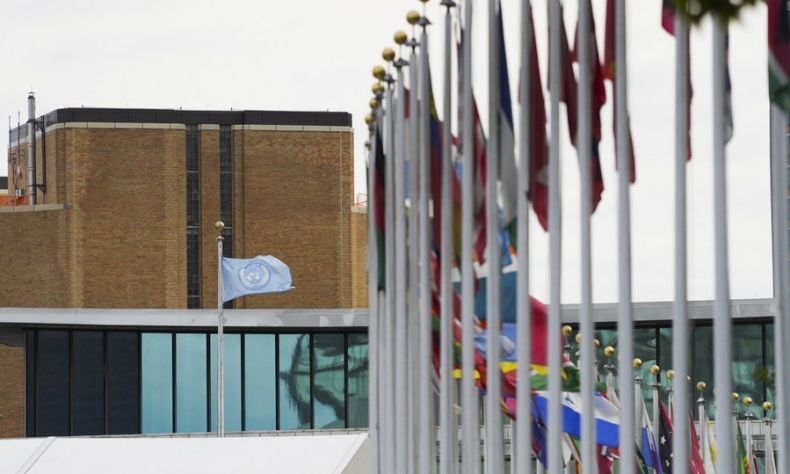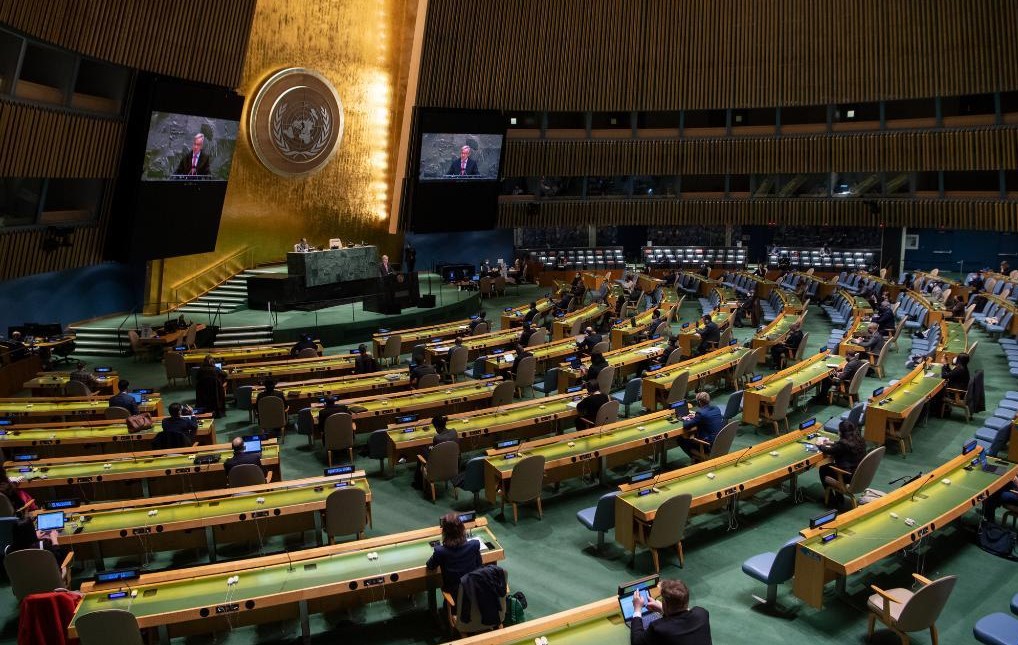A Return to Multilateralism

The world wants multilateralism which advocates equal development, pursues mutual benefits and win-win results, and shares global development achievements.
Many countries now advocate a return to multilateralism. What kind of multilateralism does the world need? In my opinion, multilateralism should never be selfish or put the national interests of one country above shared global interests. It should never be about containing other countries or building alliances with small groups. A country committed to multilateralism cannot make maintaining global hegemony its strategic goal. Nowadays, the world is facing common challenges and problems. It is impossible for any single country to shoulder the responsibility of saving and healing the world.
Why do we need multilateralism?
The world still hasn’t overcome the pandemic. Disasters even more challenging than the COVID-19 pandemic are bound to emerge in the future. This pandemic has already caused greater economic losses and depression than the 2008 international financial recession. The economies of some countries seem to be recovering. However, these economies remain plagued by many problems.
For example, the U.S. economy rebounded strongly in the first quarter of 2021. However, this rebound was the result of a loose monetary policy. The United States’ national debt reached the highest level of any country in the world. According to statistics from authoritative international organizations, by the end of 2020, global debt reached US$282 trillion, and the U.S. national debt hit a record US$28 trillion. In March 2021, the United States House of Representatives approved a US$1.9-trillion COVID-19 relief bill proposed by the Biden Administration which brought the U.S. national debt to nearly 30 trillion. The economic recovery of the United States has relied on high debt, economic stimulus measures, and an ultra-loose monetary policy. It is not a strong recovery in a real sense, and the U.S. economy is still not on the right track.

Alongside the COVID-19 pandemic, the other biggest variable is the environment. Reducing damages to the environment and restoring ecology are imperative. Human beings are being punished by nature. Poverty is another common challenge faced by mankind. At present, 20 percent of the world’s population owns 80 percent of the global resources. One billion people lack access to clean drinking water, and one billion people face the grave threat of hunger. To address all these global challenges and problems, international cooperation is needed, and the world must return to healthy multilateralism. We need to move past the debate over whether to continue multilateralism and make it the consensus and common philosophy and action of all countries.
Multiple levels of multilateralism?
Recent actions and behaviors of some countries are not a return to multilateralism in any real sense. Multilateralism features several levels: The first level is the cooperation within the United Nations system. The second level is represented by international organizations such as the World Trade Organization and the World Bank. The third level is global consensus in the form of international conventions such as The Paris Agreement, Treaty on the Non-Proliferation of Nuclear Weapons, and United Nations Convention on the Law of the Sea. The fourth level is represented by cross-border industrial agreements such as the Basel Accord. The fifth level is mechanisms for international dialogue such as the G20 and Asia-Pacific Economic Cooperation. These five levels have a coordinated goal: To establish a long-term institutional mechanism featuring orderly and interactive arrangements followed by all through reaching consensus, determining common goals, following common rules and standards, taking joint actions, and dealing with strategies, policies and acts of different countries in a coordinated manner.
The key to multilateralism is safeguarding the common interests of all countries and maintaining world peace, development, and normal relations between countries, especially the right to development for all countries. Such multilateralism aligns with the genuine multilateralism set forth and advocated in The Charter of the United Nations. The problem now is that some countries, especially the United States, the world’s super power, abuse the concept of multilateralism. U.S Secretary of State Antony Blinken called Washington’s ties with China the “biggest geopolitical test” of the 21st century. He claimed that the economic, diplomatic, military and technological power of China seriously challenges the United States. “Our relationship with China will be competitive when it should be, collaborative when it can be and adversarial when it must be,” Blinken said.

On March 1, 2021, the National Security Commission on Artificial Intelligence of the United States submitted a 756-page report to the U.S. Congress on competition between China and the U.S. in the field of Artificial Intelligence (AI). According to this report, AI research is a competition on values, and the U.S. government should continue to counter China’s microelectronics industry and contain China’s manufacturing capabilities of high-end semiconductors to maintain the U.S. lead over China. The report even proposed that the United States set its development goal of technologies two generations earlier than those of China.
I personally don’t see anything wrong with the United States establishing development goals. However, the purpose of its development should never be to contain China. The Charter of the United Nations has made it clear that every country has the right to development. China, a large country with a population of 1.4 billion, has the right to seize opportunities to accelerate its development. On March 1, 2021, the United States Trade Representative delivered 2021 Trade Policy Agenda and 2020 Annual Report to the U.S. Congress, which sent a strong signal that the U.S. would do every possible thing to counter China’s trade policy. U.S. trade chief Katherine Tai stated that the U.S. would use tariffs as a weapon and wouldn’t rule out trade sanctions on China.
What kind of multilateralism does the world want? The world wants multilateralism which advocates equal development, pursues mutual benefits and win-win results, and shares global development achievements. Multilateralism should always promote a fair and equitable international order. I think the U.S. needs to foster a correct understanding of “returning to multilateralism.”

How can we return to multilateralism?
Only if all countries follow a few basic principles can promote a return to true multilateralism. We need to do the following to return to the right track:
First, maintain the international order and the basic norms of international relations formed after World War II and safeguard the authority of international organizations. Second, optimize the role of international organizations that are conducive to world peace and development and help them better coordinate global development. Third, maintain existing global consensus and international conventions formed on this basis. Fourth, maintain cross-border industrial regulations that are conducive to the stable development of all countries. Fifth, firmly oppose containing the development of other countries or building exclusive cliques in the name of multilateralism.
At the same time, China and the U.S., the world’s two major countries, should avoid confrontation. Other countries should not be forced to choose sides in a China-U.S. confrontation, which would damage both countries and the whole world. The world is now facing severe challenges and difficulties. All countries, especially China and the U.S., should respond to difficulties and challenges with cooperation instead of conflict or confrontation and by enhancing dialogue and communication instead of erecting new barriers.
The author is the chief economist at the China Center for International Economic Exchange. This article is an excerpt from her speech at the Think Tank & Media Forum on Global Economic Development.
 Facebook
Facebook
 Twitter
Twitter
 Linkedin
Linkedin
 Google +
Google +










